4 Signs You Aren't Eating Enough Protein
Protein is the building block of muscle and a major player in the game of losing fat – but are you eating enough of it? In a new social media post, online fitness trainer and coach Alexandra (@alexx.fitt), who lost a whopping 50 pounds via diet and exercise, dives into the topic, revealing "4 signs you're not eating enough protein." Are you suffering from any of them?
Fatigue and Weakness
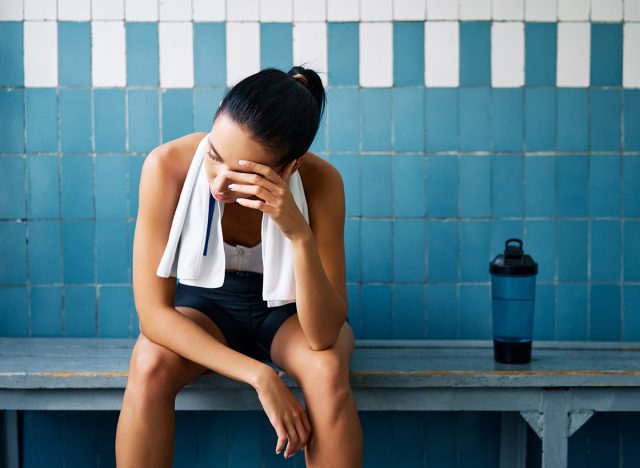
Fatigue and weakness is the first sign, says Alexandra, like if "you don't feel as strong in the gym or during any physical activity," she says. "Protein is crucial for muscle growth and repair."
Brittle Hair, Skin, and Nails

Brittle hair, skin, and nails is another sign, she says. "Insufficient protein intake can lead to weaker nails, thinning hair, and dry skin."
Constant Sugar and Carb Cravings
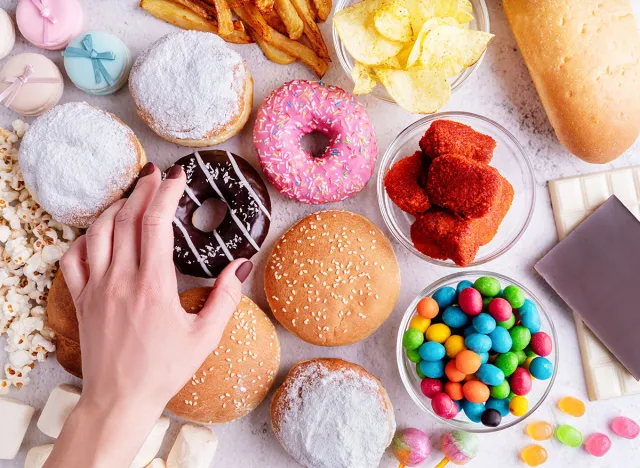
Constant sugar/carb cravings is the third sign. "This one hits me like a truck," she maintains. "If I don't eat enough protein I will overeat on so much sugar but you won't be satisfied until you get your protein in," she claims.
Constant Hunger
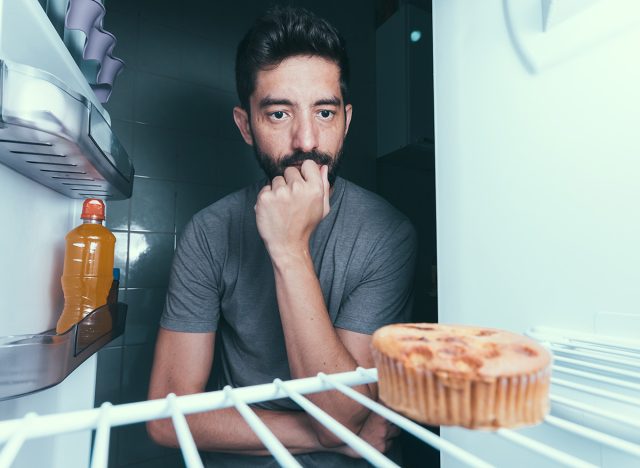
Are you constantly hungry? It could be because you aren't fueling your body with enough protein. "Eating enough protein will keep you fuller for longer and leave you more satisfied," she claims.
RELATED: 7 Foods That Fill You Up Without Making You Fat
Science Has Found a Link Between Protein and Weight Loss
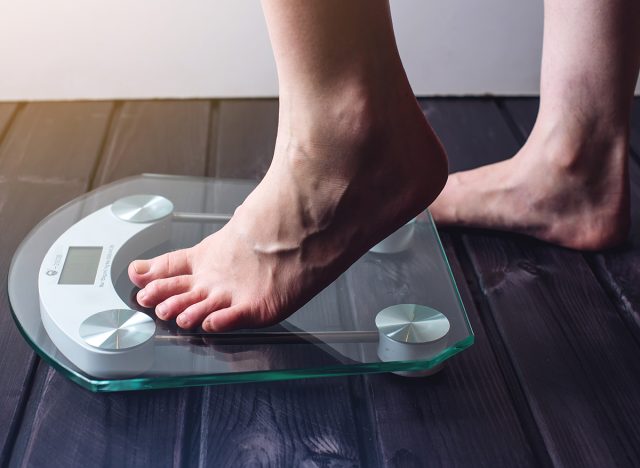
According to clinical trials, consuming more protein than the recommended dietary allowance not only reduces body weight (BW), but also enhances body composition by decreasing fat mass while preserving fat-free mass (FFM) in both low-calorie and standard-calorie diets.
Aim for 20 to 30 Grams Per Meal
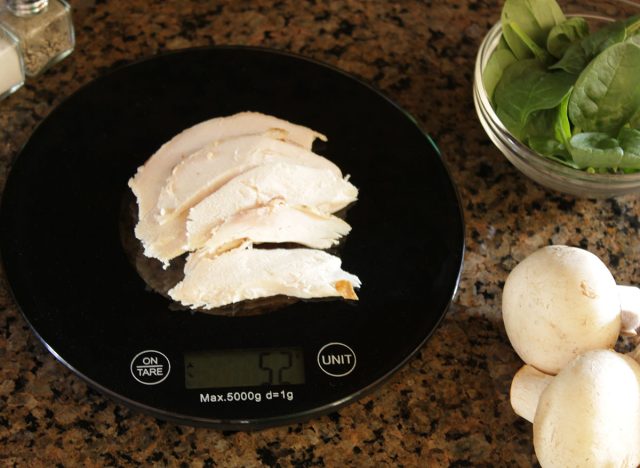
How much protein should you aim for? Body Network's Resident RDN, The Diet Diva, Tara Collingwood, MS, RDN, CSSD, LD/N, ACSM-CPT, a Board Certified Sports Dietitian, co-author of the Flat Belly Cookbook for Dummies, explains that protein needs depend on body size, gender, and of course activity level. "Most people will benefit from at least 20 grams of protein per meal (women) and 30 grams per meal (men). If that isn't enough for the day, then make up more at snack time," she says.
Protein Helps with Hunger and Fullness
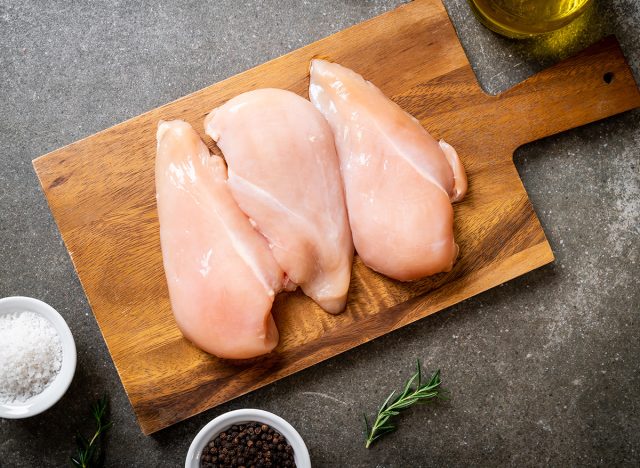
"For most individuals who are trying to lean out, we want to make sure that your protein intake is high because that will help with hunger and fullness," Chris McMahon, a nutrition and fitness coach, added to Body Network. "It'll also help preserve your muscle mass. And if you are lifting weights and you are training, it'll help you build muscle and recover. So we want to make sure that's higher."
RELATED: 15 Proven Ways to Sculpt Your Dream Body by An Expert Coach
Stick to Lean Fats
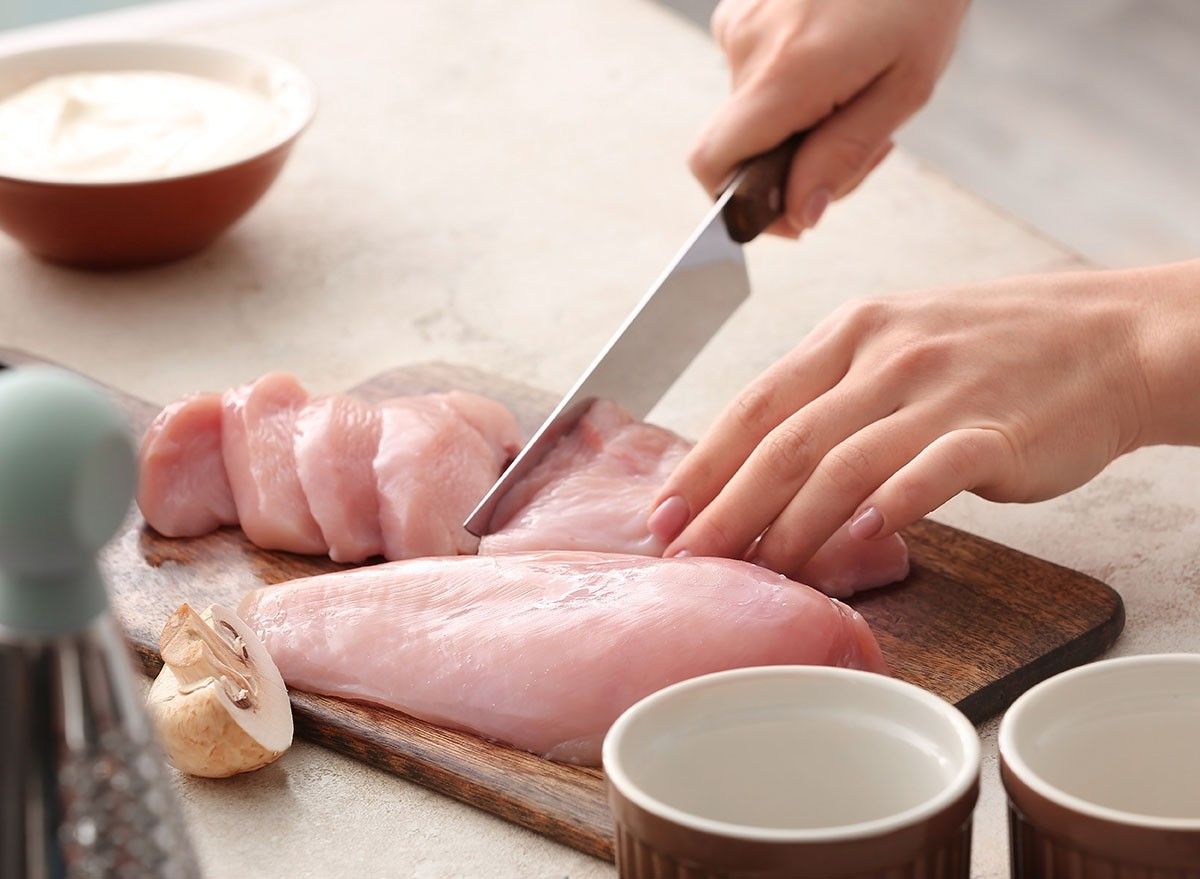
And, if you are trying to lean out, keep your protein lean, making sure the ratio of fat is lower. "Fat just tends to be a more expensive macronutrient. In one gram of protein, there are four calories. In one gram of fat, there are nine calories. So if you're someone who's used to eating fattier pieces of steak, if you're eating darker meat, then you're going to have higher fat content. So it just comes down to if I eat a leaner source of protein, if I switch to non-fat Greek yogurt, if I switch to 1% cottage cheese, if I'm aware of those things, you're going to be able to increase the amount of it that you're eating without driving up your calories," explains McMahon.
💪🔥Body Booster: If you want to lose weight and build muscle, make sure to consume 20 to 30 grams of protein per meal, determined by factors such as your gender, activity level, and weight.





